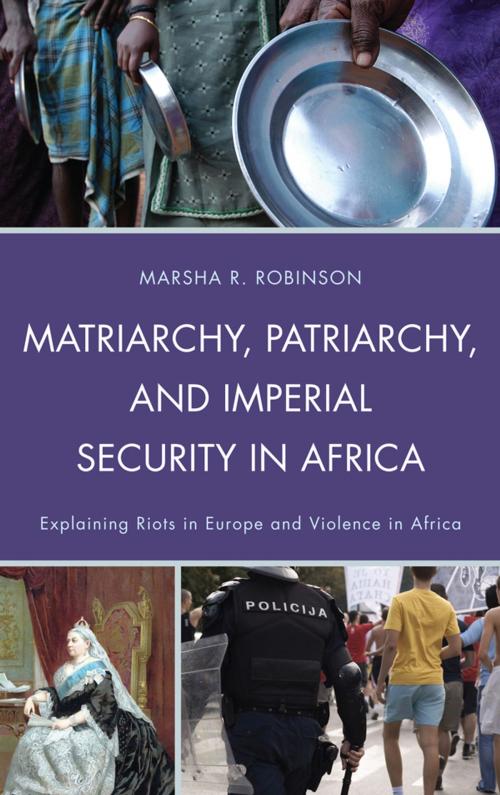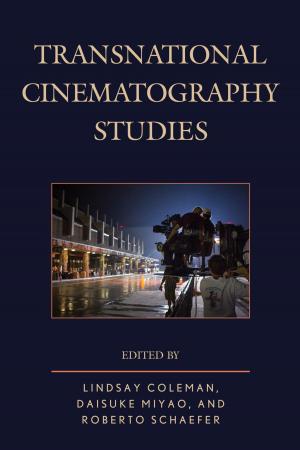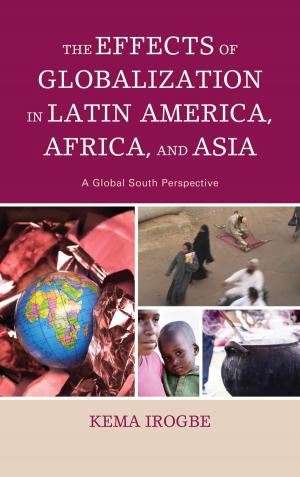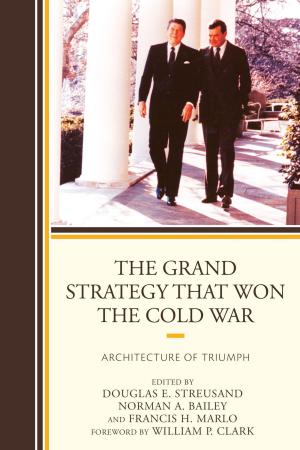Matriarchy, Patriarchy, and Imperial Security in Africa
Explaining Riots in Europe and Violence in Africa
Nonfiction, History, Africa| Author: | Marsha Robinson | ISBN: | 9780739178102 |
| Publisher: | Lexington Books | Publication: | September 6, 2012 |
| Imprint: | Lexington Books | Language: | English |
| Author: | Marsha Robinson |
| ISBN: | 9780739178102 |
| Publisher: | Lexington Books |
| Publication: | September 6, 2012 |
| Imprint: | Lexington Books |
| Language: | English |
Matriarchy, Patriarchy and Imperial Security in Africa is an interdisciplinary treatment of a topic that is usually addressed by political scientists and military strategists. Rather than follow Thomas P. M. Barnett’s, Samuel Huntington’s and Edward Saïd’s top-down approach to the turn-of-the-twenty-first century clash of the West and the Rest, this book takes readers on a three thousand year, grassroots journey through imperialism, linguistics, and applied critical theory to show readers that peace eludes us because we are not all working with the same definition of national security.
By adding a Saharan world trade system to the conventional Oriental-Occidental binary of traditional Western Civilization narratives, this book opens a view of Western Europe as a colonized territory of a medieval Roman empire that never died. A parallel imperial reorganization occurred in West Asia. Both systems deployed patriarchy as a gender bomb to implode and conquer matriarchal economies. This clash of European, West Asian and African matriarchal and patriarchal empires was the crucible that produced the United States of America as elder sibling of the family of post-colonial frontier nations.
The author argues that patriarchal imperialists of Africa, Western Asia and Western Europe tempted matriarchal men to betray the rights of women in exchange for the benefits of patria potestas. Patriarchal empires then corrupt definitions of fatherhood and dehumanize the conquered men until they suffer from a societal malaise that the author calls patria impotestas. Such economically castrated men revolted in the past and they respond now with twenty-first century mass protests against austerity measures in Europe and protests against Wall Street in the U.S. as well as with acts of terrorism and, tragically, war crimes against women.
In this book, the most insecure people are the elite. The author concludes that terrorism, piracy and acts of sabotage against industrial physical plants will continue in Africa, Asia and the West until ordinary people around the world have positive answers to the Primordial Question: Will my family eat today and sleep peacefully through the night?
Matriarchy, Patriarchy and Imperial Security in Africa is an interdisciplinary treatment of a topic that is usually addressed by political scientists and military strategists. Rather than follow Thomas P. M. Barnett’s, Samuel Huntington’s and Edward Saïd’s top-down approach to the turn-of-the-twenty-first century clash of the West and the Rest, this book takes readers on a three thousand year, grassroots journey through imperialism, linguistics, and applied critical theory to show readers that peace eludes us because we are not all working with the same definition of national security.
By adding a Saharan world trade system to the conventional Oriental-Occidental binary of traditional Western Civilization narratives, this book opens a view of Western Europe as a colonized territory of a medieval Roman empire that never died. A parallel imperial reorganization occurred in West Asia. Both systems deployed patriarchy as a gender bomb to implode and conquer matriarchal economies. This clash of European, West Asian and African matriarchal and patriarchal empires was the crucible that produced the United States of America as elder sibling of the family of post-colonial frontier nations.
The author argues that patriarchal imperialists of Africa, Western Asia and Western Europe tempted matriarchal men to betray the rights of women in exchange for the benefits of patria potestas. Patriarchal empires then corrupt definitions of fatherhood and dehumanize the conquered men until they suffer from a societal malaise that the author calls patria impotestas. Such economically castrated men revolted in the past and they respond now with twenty-first century mass protests against austerity measures in Europe and protests against Wall Street in the U.S. as well as with acts of terrorism and, tragically, war crimes against women.
In this book, the most insecure people are the elite. The author concludes that terrorism, piracy and acts of sabotage against industrial physical plants will continue in Africa, Asia and the West until ordinary people around the world have positive answers to the Primordial Question: Will my family eat today and sleep peacefully through the night?















